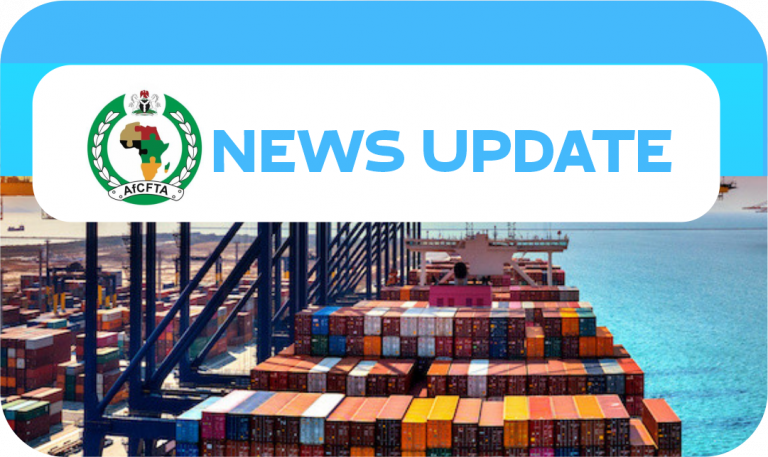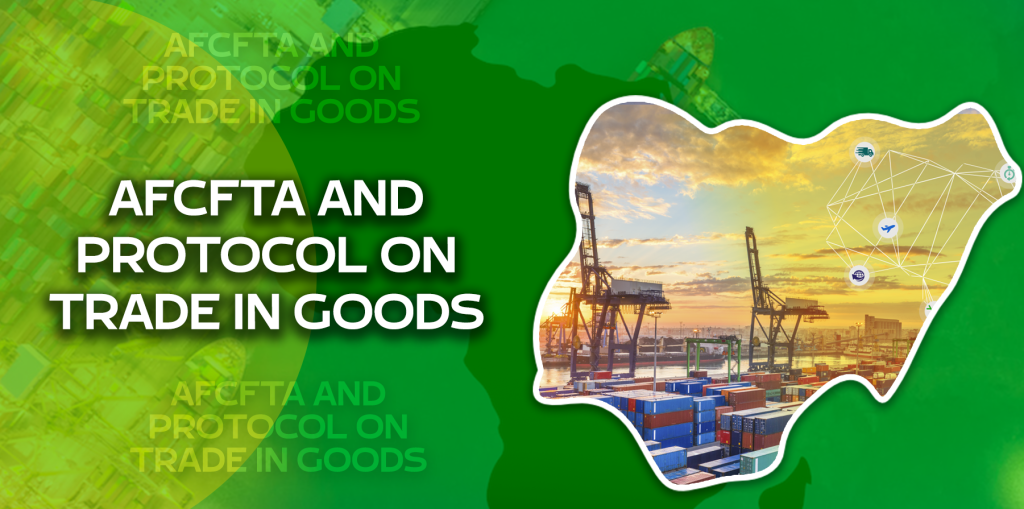AfCFTA and Protocol on Trade in Goods
The AfCFTA is a historical agreement becoming the world’s largest free trade area bringing together 55 countries in the African Union (AU) and 8 Regional Economic Communities (RECs). The AfCFTA is a flagship project of Agenda 2063 with a mandate to create a single market of goods and services in Africa with a population of 1.3 billion people and a combined GDP of approximately US$ 3.4 trillion.
The Agreement aims to eliminate trade barriers and boost intra-Africa trade, advance trade in value-added production across all services sectors of the African economy, and enhance economic growth and development. The implementation of the AfCFTA has the potential to foster industrialization, job creation, and investment, therefore improving the competitiveness of Africa in the medium to long term.
The Trade in Goods Protocol is one of the six protocols that constitute the AfCFTA trading blocs and is an integral part of the AfCFTA agreement, which sets out the rules and procedures for Trade in Goods between member states. The protocol covers a wide range of issues related to trade, including customs procedures, tariffs, rules of origin, and technical barriers to trade. It ensures that there is transparency, predictability, and fairness in the trading of goods within the AfCFTA.
According to Article 3 of the agreement, the main objective of the protocol is to create a liberalized market for Trade in Goods. One of the key benefits of the Trade in Goods Protocol is that it will eliminate tariffs on 90% of goods traded between African countries. This will reduce business costs, increase competition, and stimulate economic growth across the continent. The remaining 10% of goods will be subject to tariff reductions over a period of five to ten years, giving businesses time to adjust to the new trading environment.
The protocol also includes provisions to simplify customs procedures and reduce non-tariff barriers to trade. This will help to streamline the movement of goods across borders and make it easier for businesses to trade within the AfCFTA.
A dispute resolution mechanism is also included in the protocol, which helps to ensure that trade disputes are handled fairly and efficiently.
Challenges
One of the challenges facing the AfCFTA is the issue of Rules of Origin. Rules of Origin are the criteria used to determine the country of origin of a product, and how commodities would be conferred with preferential treatment under the AfCFTA and would be allowed to enter importing state duty-free.
The Trade in Goods Protocol establishes a set of Rules of Origin for goods traded within the AfCFTA, but there are concerns that these rules may be too complex and difficult to implement. This could lead to delays and uncertainty in trade, which could undermine the benefits of the agreement.
Despite these obstacles, the AfCFTA and Trade in Goods Protocol represent an important step forward in African economic integration. The agreement has the potential to turn Africa into a single market, opening up new business opportunities and promoting economic growth and development. For the agreement to be implemented successfully, member states will need to demonstrate strong political will and cooperation.
In conclusion, the Trade in Goods Protocol is an integral part of the AfCFTA agreement. By reducing tariffs, simplifying customs procedures, and introducing rules of origin, the agreement is expected to increase trade and promote economic growth across the continent. while there are challenges to implementing the agreement, the potential benefits for African economies are significant, and the AfCFTA represents a major step forward for economic integration on the continent.
Reference(s)
- “Trade in Goods”. AFCFTA, accessed 30th March 2023.
- “AFCFTA and Unpacking the Protocols for Trade in Goods”. Upside Africa, accessed 31st March 2023.
- “AfCFTA Protocol on Trade in Goods”. Trade Unions in Afcfta, accessed 1st April 2023.

AU Summit 2023: To Boost Inter-African Trade Through AfCFTA
To boost intra-African trade, the continent has embarked on the gradual elimination of tariffs on 90 percent of goods, reduction of barriers to trade in services aimed at increasing Africa’s income by $450 billion by 2035.
READ MORE
AfCFTA increased intra-African trade by 20 percent in 2022
The African Continental Free Trade Area (AfCFTA) increased intra-African trade by 20 percent in 2022.
READ MORE
Nigeria’s unemployment rate may hit 40.6% amid economic slowdown, says KPMG
KPMG says Nigeria’s unemployment rate will rise further to 40.6 percent in 2023.
READ MORE
AfDB approves $525,000 grant for African fintech firms
The African Development Bank has approved a grant of $525,000 for an online digital hub to serve as a repository of knowledge for fintech entities in Africa.
READ MORE

